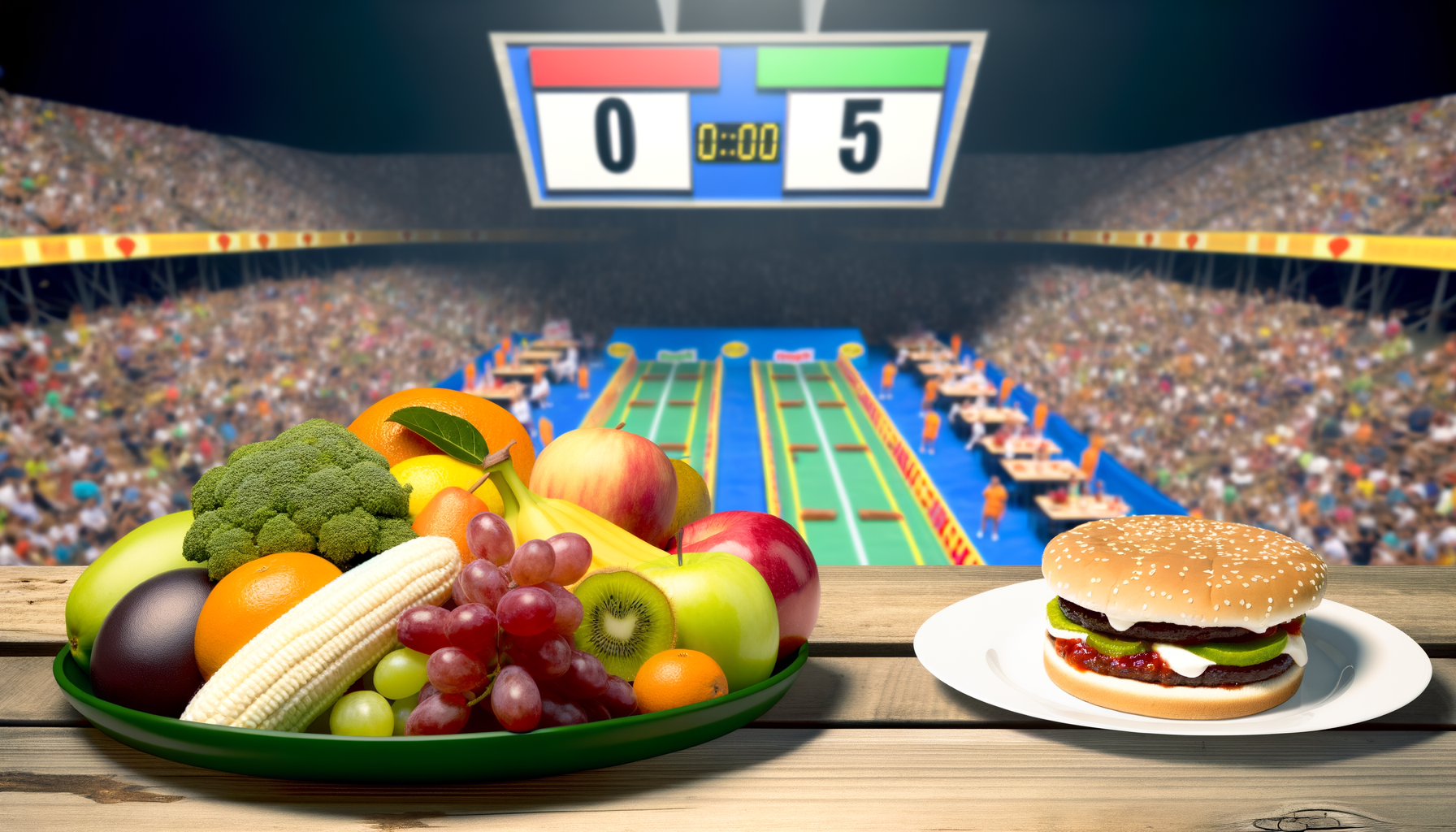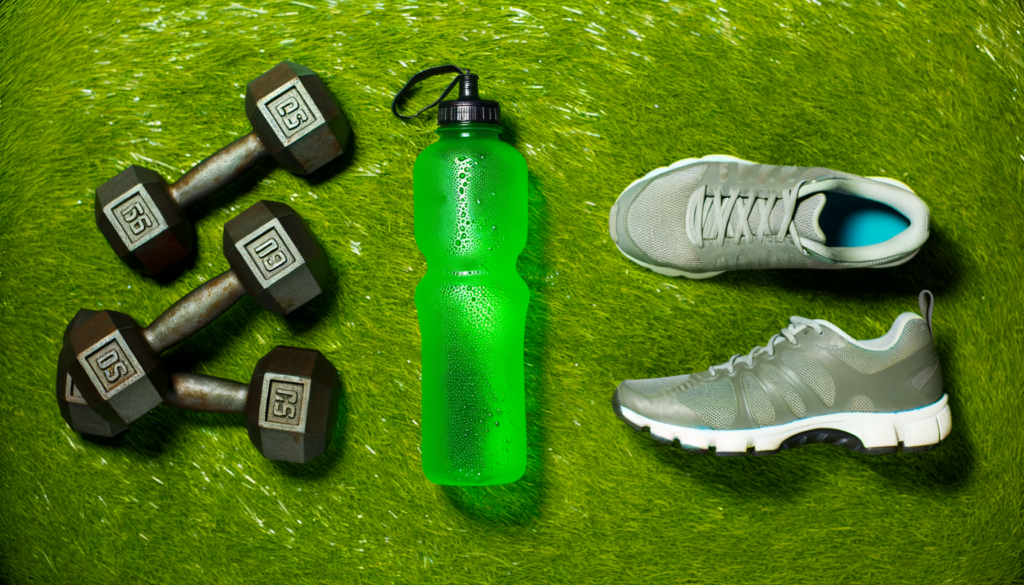The Unique Challenges of Competitive Eating Athletes
Competitive eating, often viewed as an extreme sport, presents a unique set of nutritional and health challenges that are distinct from other athletic pursuits. Athletes in this field must balance the demands of their sport with the need to maintain overall health and metabolic well-being. Here, we delve into the intricacies of calorie tracking for competitive eating athletes and explore how they can achieve this delicate balance.
Understanding the Nutritional Needs of Competitive Athletes
Competitive eating athletes, unlike traditional athletes, do not require the same level of physical endurance or muscle strength. However, they still need a tailored nutritional plan to optimize their performance. Here are some key considerations:
– **Caloric Intake**: Competitive eaters need to consume a high number of calories to train their stomachs to expand and to build up their eating capacity. This can be challenging because it involves consuming large amounts of food in short periods, which can be detrimental to health if not managed properly.
– **Macronutrient Balance**: A balanced diet that includes proteins, carbohydrates, and fats is essential. However, competitive eaters often focus on high-calorie, high-carbohydrate foods to maximize their caloric intake quickly. For example, foods like pizza, hot dogs, and burgers are common choices due to their high calorie and carbohydrate content.
– **Hydration**: Adequate hydration is crucial for digestive health and overall performance. Athletes must ensure they drink plenty of water to help with digestion and prevent dehydration.
The Role of Calorie Tracking in Competitive Eating
Calorie tracking is a critical component of a competitive eater’s training regimen. Here’s how it can be implemented effectively:
– **Using Calorie Calculators**: Tools like the Calorie Calculator Cloud can help athletes accurately track their caloric intake. These calculators provide detailed breakdowns of the calories, macronutrients, and other nutritional components of the foods consumed.
– **Meal Planning**: Athletes should plan their meals carefully to ensure they are meeting their caloric needs without compromising their health. This might involve consulting with a nutritionist or using meal planning apps like MyFitnessPal to track daily intake.
– **Training Sessions**: During training sessions, athletes need to monitor how much they eat and how quickly they can consume food. This helps in building up their stomach capacity and improving their eating speed.
Health Implications of Competitive Eating
While competitive eating can be an exciting and rewarding sport, it comes with several health risks that athletes must be aware of:
– **Digestive Issues**: Frequent consumption of large amounts of food can lead to digestive problems such as bloating, nausea, and stomach pain. Athletes may also experience acid reflux and other gastrointestinal issues.
– **Weight Management**: Competitive eaters often struggle with weight management. The high caloric intake can lead to weight gain, which may affect their overall health and performance.
– **Metabolic Health**: The constant influx of high-calorie foods can impact metabolic health, potentially leading to conditions like insulin resistance and type 2 diabetes. Athletes need to monitor their metabolic health closely and make adjustments to their diet as necessary.
Case Studies and Real-World Examples
Several competitive eaters have successfully balanced their sport with health considerations. Here are a few examples:
– **Joey Chestnut**: Known as one of the top competitive eaters, Joey Chestnut has won numerous eating contests, including the annual Nathan’s Hot Dog Eating Contest. He maintains a balanced diet outside of competitions and focuses on training his stomach capacity through controlled eating sessions.
– **Miki Sudo**: A professional competitive eater, Miki Sudo has also won several eating contests. She emphasizes the importance of hydration and balanced nutrition to maintain her health and performance levels.
Strategies for Maintaining Metabolic Health
To maintain metabolic health, competitive eating athletes can follow several strategies:
– **Regular Exercise**: Engaging in regular physical activity can help offset the high caloric intake. Activities like running, swimming, or strength training can improve metabolic health and overall fitness.
– **Balanced Diet**: Outside of training and competitions, athletes should focus on a balanced diet rich in fruits, vegetables, lean proteins, and whole grains. This helps in maintaining a healthy weight and supporting overall metabolic health.
– **Health Monitoring**: Regular health check-ups are essential to monitor metabolic health indicators such as blood sugar levels, cholesterol, and blood pressure.
Conclusion and Next Steps
Competitive eating is a unique sport that requires a specialized approach to nutrition and health. By using tools like the Calorie Calculator Cloud and following a well-planned nutritional strategy, athletes can balance their sport with their health needs.
For those interested in competitive eating, it is crucial to start with a solid understanding of nutritional needs and the potential health implications. Here are some next steps:
– **Consult a Nutritionist**: Working with a nutritionist can help athletes develop a personalized meal plan that meets their caloric needs while ensuring overall health.
– **Choose the Right Tools**: Utilize calorie tracking tools and meal planning apps to monitor and manage caloric intake effectively.
– **Stay Informed**: Continuously educate yourself on the latest research and best practices in extreme sports nutrition to stay ahead in the sport.
By taking these steps, competitive eating athletes can achieve success in their sport while maintaining their health and metabolic well-being.
If you are considering a career in competitive eating or simply want to understand more about the nutritional aspects of this sport, exploring resources like the Calorie Calculator Plans can provide valuable insights and tools to help you on your journey.








